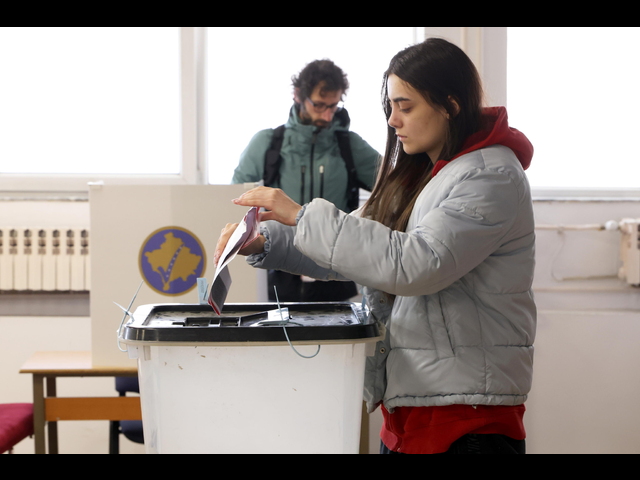
(ANSA) - BELGRADE, OCT 11 - Local elections in Kosovo will take place tomorrow, despite ongoing inter-ethnic tensions between the ethnic Albanian majority and the Serbian minority supported by Belgrade. This climate of mutual distrust and constant cross-accusations impedes the continuation of the EU-facilitated dialogue, which has long been stalled with no tangible results. Many factors contribute to this depressing situation, including the accelerated closure of Serbian offices, post offices, banks, and representations; the numerous arrests of Serbs, allegedly carried out without valid grounds; and Pristina's attempt to exclude Srpska Lista, the largest Serb party, and, by extension, all Serbian media from tomorrow's municipal elections. These attempts were unsuccessful due to the Serbian side's vigorous protests and timely appeals. The primary goal of Srpska Lista, which has nine of the ten seats allocated to the Serb minority in the Pristina parliament, is to reclaim the Serb-majority municipalities in northern Kosovo, which have been led by ethnic Albanian mayors for more than two years. This is due to the Serbs' boycott of the early local elections scheduled for April 2023. The election of these Albanian mayors in the four largest Serb municipalities in the north (Zvecan, Zubin Potok, Leposavic, and the northern (Serbian) sector of Kosovska Mitrovica) sparked protests and massive demonstrations by local Serbs, frequently resulting in clashes and riots with police and KFOR troops. Pristina called for early elections in spring 2023, following regular local elections in October 2021, after Serb representatives withdrew from all Kosovo institutions (schools, courts, police, public administration, and political offices) in November 2022 in protest of the Pristina leadership's perceived discriminatory policies, particularly the ban on the circulation of cars with Serbian licence plates issued by Belgrade. Internationally, Kosovo appears weakened, as the escalation of anti-Serbian nationalism has irritated Western allies, resulting in EU sanctions and the suspension of strategic dialogue with Pristina by the US. (ANSA).
